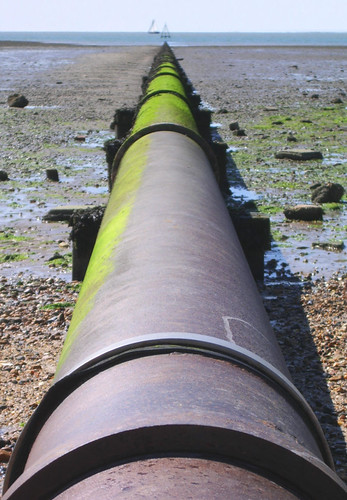
Vietnam, a country bordered by China, Laos and Cambodia with over 86 million inhabitants-placing this Asian population thirteenth in the world. Vietnam is approximately the size of Germany and topographically consists of dense forested mountains and hills. This wide expanse of rural agricultural land is managed by 72.6% of the population. (United Nations 2007 statistic) Farmers working to sustain themselves have to be diligent and considerate of environmental and economic concerns. By integrating reusables into farming, they are minimizing production cost and redirecting waste to a good use.
This survival kit will examine the wastewater irrigation system used in agriculture in rural Vietnam.

The objective is direct- usage of irrigation technology to cultivate crops which in turn are able to sustain the population.
What is wastewater?
Wastewater consists of:
-
Blackwater: from toilets
-
Greywater: from dishwashing, laundry and bathing
-
Industrial water: liquid waste from factories
Stormwater: from rain or snow

Wastewater Irrigation
Urbanization outpaces sanitation infrastructure development. The sanitation maintenance in rural Vietnam is comparatively poor to the standards in wealthy countries such as Canada. Farmers in rural areas do not have access to purified water, they resort to tapping into the sewer pipes to irrigate their fields.
Now I present the unimaginable, sewage water to cultivate food? (blah)
With our high standards of living this would be deemed intolerable, yet it is the only option for farmers striving to make a living.
Wastewater irrigates approximately 49 million acres of cropland, and 10 percent of the world's population would starve if they didn't have access to food grown that way.

Purifying water costs a relative fortune. Vietnam has limited income and mostly only provides this service to the tourist sites and urban areas. Small rural villages can’t afford to produce clean drinking water and therefore can’t afford clean water for irrigation purposes.
There are beneficial nutrients in wastewater such as potassium, nitrogen and phosphorus. These are the same ingredients found in chemical fertilizers. Vegetation reacts fairly well and provides the necessary income for many.
"There is a large potential for wastewater agriculture to both help and hurt great numbers"
- International Water Management Institute
Health Concerns
There are still obvious health risks associated with wastewater.This is why the World Health Organization (WHO) stresses on the need to educate methods to reduce health hazards. There are simple natural ways that water can undergo purification. Vietnamese farmers created ponds of wastewater and let it sit until some of the pollutants (mostly feces and worm eggs) sink to the bottom, and then they apply the water to the crops-possibly reducing bacterial content in the residual water. Crops grown with wastewater should be foods that require cooking (rice) or grows at a height (corn) in order to reduce edibles from contamination. An alternative can be to grow industrial plants such as cotton.

Other possible methods of bacteria reduction such redirecting the water to gravitationally flow into dams and ponds creating filters and crop selection are entailed in this video showcasing wastewater agriculture in Africa.
YouTube video: International Water Management Institute (IWMI)
How do farmers gain access to wastewater?
Usage of reuse waste in agriculture and aquaculture is nothing new in Vietnam. This practice is centuries old. Hanoi and cities in the Red River delta have wastewater drainage into natural ponds. These ponds besides usage for aquaculture and irrigation water also act as a form of flood control. It is important to note that unlike situations in Africa, the wastewater to crops is indirect. Purification of the water is achieved by first running through ponds that then discharge water into irrigation canal systems.
Benefits
What we must realize that Vietnam's wastewater system is not a matter of choice. The people are restricted by lack of wealth and have made the most of what is readily available. The integrated system of wet waste disposal, agriculture and food creates the necessary relationship, in fact a viable relation that the society can achieve.
The benefits of wastewater agriculture has a quantifiable significance for the whole country. 77% of the city’s freshwater supply returns as wastewater. The Vietnamese have optimized usage of this source through recycling. Irrigation plays a significant role in agricultural production, which represents approximately 25% of the country’s gross national product (IWMI). Finally, 80% of Hanoi city's vegetable demand is satisfied from wastewater agriculture (Tran Van Lai, 2000).
Case Conclusions
Vietnam is one of many applications of wastewater agriculture. People all over the world are learning to adapt to the end products of urban living. They live in a world where "local knowledge rules...Urbanism becomes a matter of subsistence,of survival" (The Point, The Line, and The Plane in Subsistence Urbanity, Mcay). Their cautious way of living gives perspective to alternate ways resources can be diligently used; it brings a stark contrast to the luxuries and excessive goods of Megacities.
These ideas are forever changing the way we look at sustainability, networking of communities and the productivity of populations.
Notes
"Cipotato.org." http://www.cipotato.org/urbanharvest/images/waste_trial02b.jpg. Internet; accessed 1 November 2009.
Eichenseher, Tasha. "Human Waste Used by 200 Million Farmers, Study Says." National Geographic News. http://news.nationalgeographic.com/news/pf/3948865.html. Internet; accessed 1 November 2009.
"flickr." http://farm1.static.flickr.com/62/181777075_6a39595f4f.jpg?v=0. Internet; accessed 1 November 2009.
Julia, Layton. "What is wastewater agriculture?." How Stuff Works. http://science.howstuffworks.com/wastewater-agriculture.htm. Internet; accessed 1 November 2009.
United Nations Vietnam. http://www.un.org.vn/. Internet; accessed 11 November 2009.
"Vietnam." Wikipedia. http://en.wikipedia.org/wiki/Vietnam. Internet; accessed 1 November 2009.
"Wastewater Use in Irrigated Agriculture Coordinating the Livelihood and Environmental Realities." http://www.idrc.ca/openebooks/112-4/. Internet; accessed 1 November 2009.
- Natalie Hui

This comment has been removed by a blog administrator.
ReplyDelete